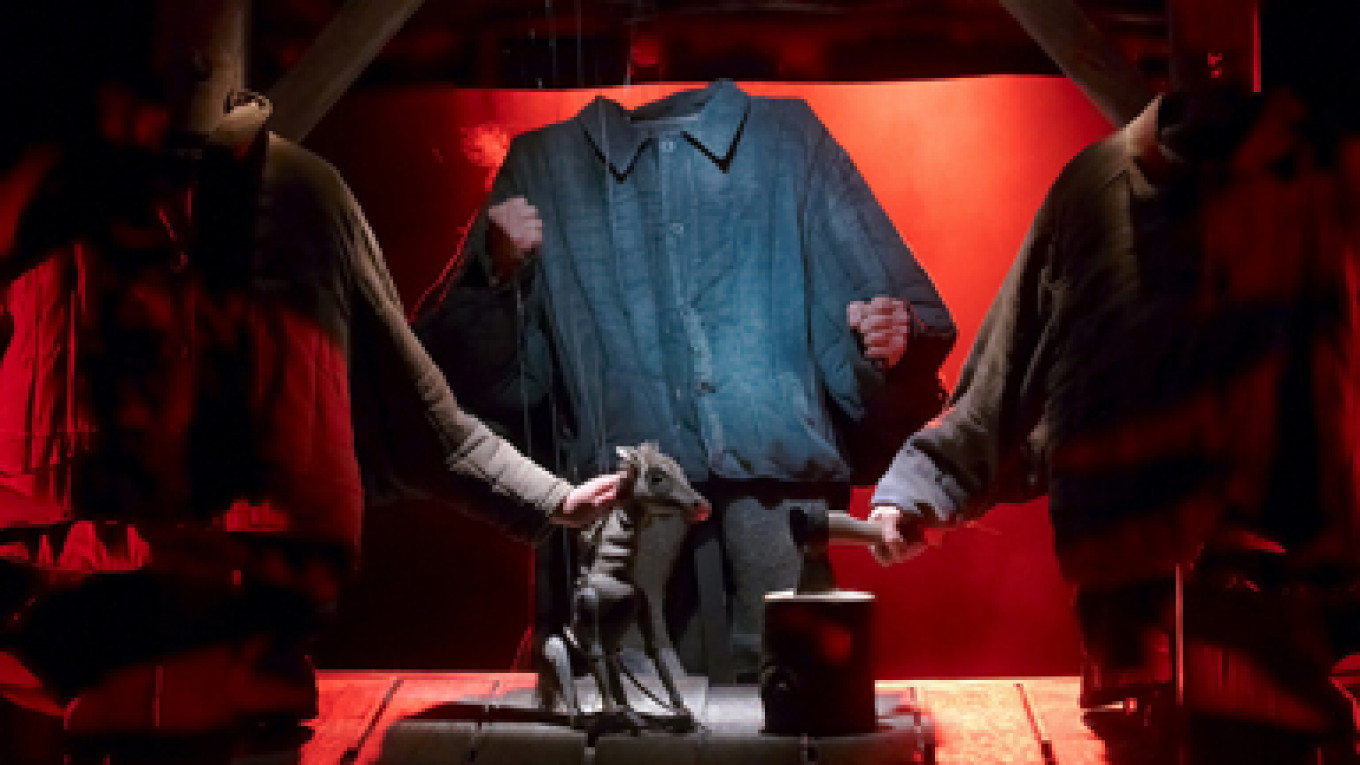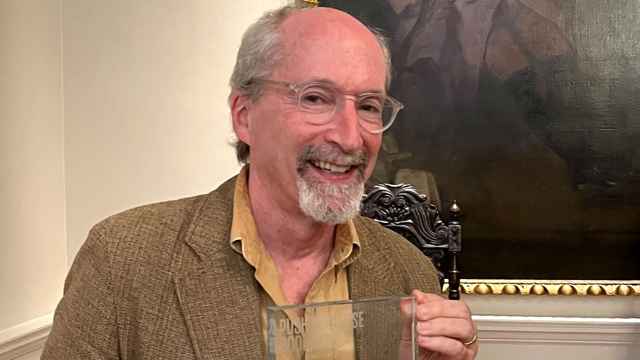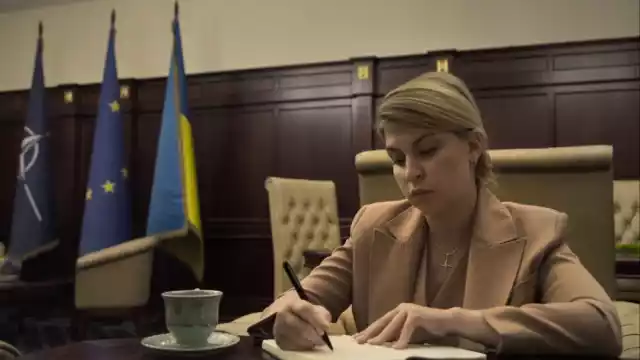I am filled with thoughts of Tolstoy thanks to the Golden Mask Festival, the Bolshoi Puppet Theater of St. Petersburg, and their production of "Kholstomer: The Chronicle of the Saving of a Soul." I saw this performance about an old horse reminiscing about its hard life at the Meyerhold Center on Tuesday afternoon and was moved. The puppetry was exquisite &mdash the horses were more alive and more expressive than the live actors and the set design by Andrei Zaporozhsky was exquisite in its simplicity and functionality.
I must admit &mdash my mind did wander. It didn't go far, however, because it was Tolstoy I was thinking of.
For the umpteenth time in my life I found myself astonished at what this writer could do with a few words. I was taken aback again by his deep feeling for justice and integrity. Some people in the modern world will remind you of what a difficult, demanding, even cruel, person Tolstoy could be. He was a lousy husband, for instance. But I wonder how many of us are as good as we could be as husbands, wives, parents and children? I wonder how we would look if our lives were put under a microscope? I'm less inclined to rummage around in Tolstoy's personal life when it's none of my business than I am to respond with amazement at the beauty and power that Tolstoy commanded as a writer.
In "Kholstomer," also known in English as "Strider: The Story of a Horse," Tolstoy created one of his simplest, most direct parables about liberty and injustice. The old Kholstomer was the son of two of Russia's finest and most famous horses. But, with the exception of one single, glorious day when he showed what he was capable of, he was never an outstanding horse. Tolstoy uses this "useless" horse to demonstrate with ringing clarity that our perceptions of what is and is not useful are seriously flawed.
 |
|
Golden Mask Festival
Kholstomer |
And then there is the obvious, yet jarring, passage in the tale about man's silly claims to ownership of almost everything &mdash from people to objects to nature. It is something Kholstomer does not understand. How can someone own me? he wants to know. Why, he wants to know, do humans always talk about owning land, owning water, owning air? This, incidentally, is a question Tolstoy tackled in several works, including the story "How Much Land Does a Man Need?"
If one were so inclined, one could call Tolstoy's comments timely for our age. The changes ravaging our planet are on the verge of creating unheard-of upheavals as those who have or do not have sufficient water, oil, land and breathable air are pushed deeper into conflict. Tolstoy's belief that land cannot be owned may strike many of us as funny. But the context he puts it in can't help but make you doubt. Most of us would agree that air cannot be owned. But in essence, at least, how is air any different from land? It is merely one more of the elements. There was a report recently that Manhattan may be submerged if global warming continues at its current pace. What will happen in New York when water owned by no one inundates all those prestigious addresses owned by many? These are hard questions that go far beyond economics and politics and range into territory usually reserved for philosophers.
As I sat watching the Bolshoi Puppet Theater's production of "Kholstomer," I was reminded again that Tolstoy was both a writer and a philosopher. I was reminded, too, that we live in an age when we are being called upon to be philosophers. In Tolstoy's world, a horse is capable of being a philosopher. I wonder about most of us. Are we up to the task?
A Message from The Moscow Times:
Dear readers,
We are facing unprecedented challenges. Russia's Prosecutor General's Office has designated The Moscow Times as an "undesirable" organization, criminalizing our work and putting our staff at risk of prosecution. This follows our earlier unjust labeling as a "foreign agent."
These actions are direct attempts to silence independent journalism in Russia. The authorities claim our work "discredits the decisions of the Russian leadership." We see things differently: we strive to provide accurate, unbiased reporting on Russia.
We, the journalists of The Moscow Times, refuse to be silenced. But to continue our work, we need your help.
Your support, no matter how small, makes a world of difference. If you can, please support us monthly starting from just $2. It's quick to set up, and every contribution makes a significant impact.
By supporting The Moscow Times, you're defending open, independent journalism in the face of repression. Thank you for standing with us.
Remind me later.







